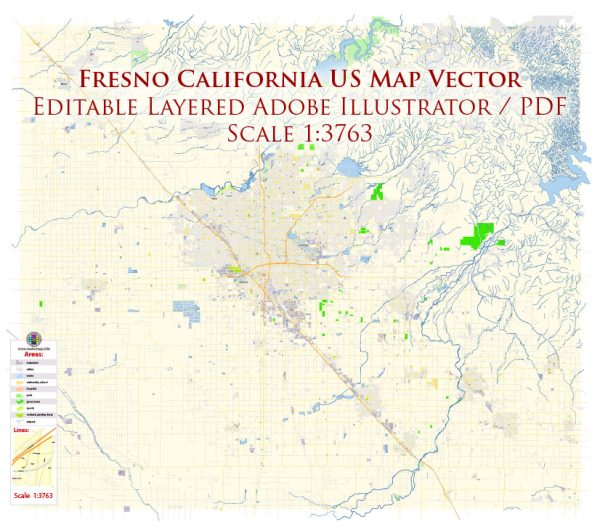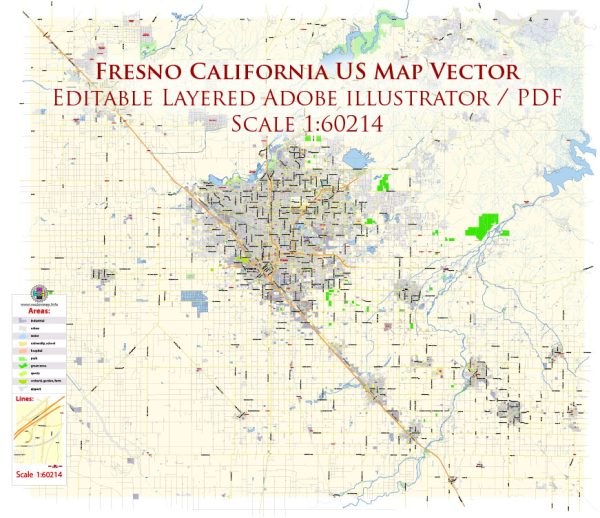Fresno, California, is a diverse and dynamic city located in the heart of California’s San Joaquin Valley. It is the fifth most populous city in California and is known for its rich agricultural heritage, being a major hub for the state’s agricultural industry. Here’s a socio-economic description of Fresno:
- Economy: Fresno’s economy is heavily reliant on agriculture, with crops such as grapes, almonds, cotton, and citrus fruits being major contributors. It’s often referred to as the “breadbasket of the world” due to its significant role in food production. Additionally, healthcare, education, manufacturing, and retail are also important sectors in the local economy.
- Income: The median household income in Fresno is typically lower than the state and national averages. The city has a relatively higher poverty rate compared to other major cities in California.
- Education: Fresno is home to several institutions of higher education, including California State University, Fresno. However, education levels in the city vary, and a significant portion of the population may have lower educational attainment.
- Diversity: Fresno is a diverse city with a significant Hispanic and Latino population, along with a mix of various other ethnic and cultural groups. This diversity contributes to the city’s unique cultural identity.
- Housing: The cost of living in Fresno is generally lower than in some of California’s coastal cities. Housing costs are relatively more affordable, but there are still disparities in terms of housing quality and access to safe, stable housing.
- Healthcare: Fresno has several healthcare facilities and hospitals, but there are also areas with limited access to healthcare services, especially in underserved communities.
- Unemployment: Unemployment rates in Fresno can vary, with periods of economic growth and challenges, particularly in agriculture-dependent industries.
- Crime: Like many urban areas, Fresno faces crime-related challenges, particularly in certain neighborhoods. Efforts have been made to address crime and improve public safety.
- Social Services: Fresno has a network of social service organizations that provide assistance to those in need, including food banks, shelters, and employment services.
- Transportation: Fresno has a public transportation system, but it may not be as comprehensive or well-developed as in larger cities. The city is intersected by major highways, making it a transportation hub in the region.
- Cultural Activities: Fresno offers a range of cultural and recreational activities, including museums, theaters, and parks. It’s also known for its vibrant arts and music scenes.
- Challenges: Fresno, like many cities, faces socio-economic challenges such as income inequality, disparities in education and healthcare access, and concerns related to poverty and crime.
Overall, Fresno is a city with a mix of socio-economic conditions. While it has a strong agricultural and economic base, there are areas of the city that face socio-economic challenges, including poverty and limited access to resources and opportunities. Efforts are continually being made by local organizations, government agencies, and community members to address these challenges and improve the quality of life for all residents.



 Author: Kirill Shrayber, Ph.D. FRGS
Author: Kirill Shrayber, Ph.D. FRGS